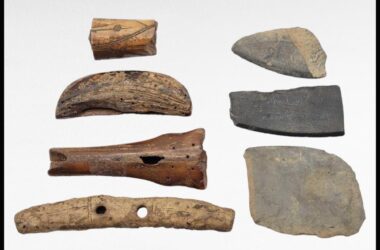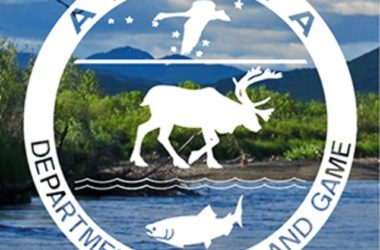On Monday, April 6, Governor Mike Dunleavy signed into law the Fiscal Year 2021 budget. House Bill 205, as enacted, takes advantage of Federal funds for COVID-19 response and stabilization to help fund previously-appropriated state funding. It also includes a $1000 Permanent Fund Dividend.
Governor Dunleavy discussed the budget signing at a press conference on Tuesday, April 7. Most questions centered around his vetoes to large sections of the budget.
The budget talk began with $15,458,300 vetoed from the Alaska Marine Highway System budget: “You’re gonna see the AMHS was – the amount of money that the Legislature put in, which was considerable – we vetoed it back, but there’s still more money in it this year than there was last year going into next year. We have a Marine Highway Reshaping Group that has been meeting and we’re going to wait for them to come up with their ideas and we’ll respond to those ideas, and in the end, there may be more money going in, there may be changes in how things are done, but nonetheless, there is more money in the Marine Highway System. There is money to make sure that we get repairs to boats and that we have boats moving and that we have additional weeks in the schedule.”
Another hot topic was the $100,154,200 school bond debt reimbursement veto, which the Governor claims will be funded using federal COVID-19 relief money: “The debt reimbursement for municipalities on school bonds, we vetoed all of our UGF money out of that, but again, the plan is to replace that money with the Federal COVID money – the $1.2 billion that we’re going to be getting from the Federal government. So you’ll see a lot of the vetoes that occurred was to save UGF money because we are going to be getting Federal money to help fight this fire.”
Speaking further to education, $4,300,000 was vetoed from the Pre-Kindergarden grant budget. The money would have been utilized the expand the state’s Pre-K program, but the Governor says he wants to see a proper bill about his proposed reading program pass before the state is able to decide exactly how much money should be allotted for the program. Ultimately, the cut was attributed to the “current economic and fiscal environment.”
Commissioner Adam Crum of the Alaska Department of Health offered insight into why $31,000,000 was vetoed from the proposed Medicaid budget: “The Federal participation, the matching Federal dollars for the Medicaid fund was increased by 6.2% and so that actually has been in-play already for the past couple of weeks as we’ve been paying out to our Medicaid recipients and providers. So, that is one aspect that we took into account – we looked at this overall budget process. So, going forward in FY 2021, we believe we’re going to be able to maintain current levels as well.”
When pressed on which cuts will be funded by capitalizing on the Federal CARES Act, the Governor claims that most will, but is not sure of exactly which: “Uh, the majority of the reductions. For the example, in education. These are things that are being impacted by the virus and ancillary closure that we had to do for the economy. So, all of these impacts are affecting these various programs and services, so the majority.”
In a press release, House Speaker Bryce Edgmon took issue with the very concept of utilizing the CARES Act to supplement basic budget items: “From our initial understanding, federal funds can only be used for expenditures incurred due to COVID-19, not expenditures unrelated to the COVID-19 response. The governor’s vetoes gamble with vital programs like Medicaid, community assistance, school bond debt reimbursement, K-12 education, homeless grants, the Alaska Marine Highway System, public broadcasting, the university, and more. There is no guarantee that the federal government will pick up the tab. This approach is incredibly troubling to me. Unfortunately, not only did the governor veto his own supplemental budget requests, he is also using the COVID-19 crisis as justification to veto items he never supported. We need to hear more from the administration on the conversations they’ve had with the federal government about the sideboards around the federal money Alaska is receiving. The governor needs to ensure Alaskans that these essential services will be paid for by the CARES Act.”
Governor Dunleavy claims that these changes to the budget were critical to “get our fiscal house in order and provide a secure and stable future for Alaskans.”






